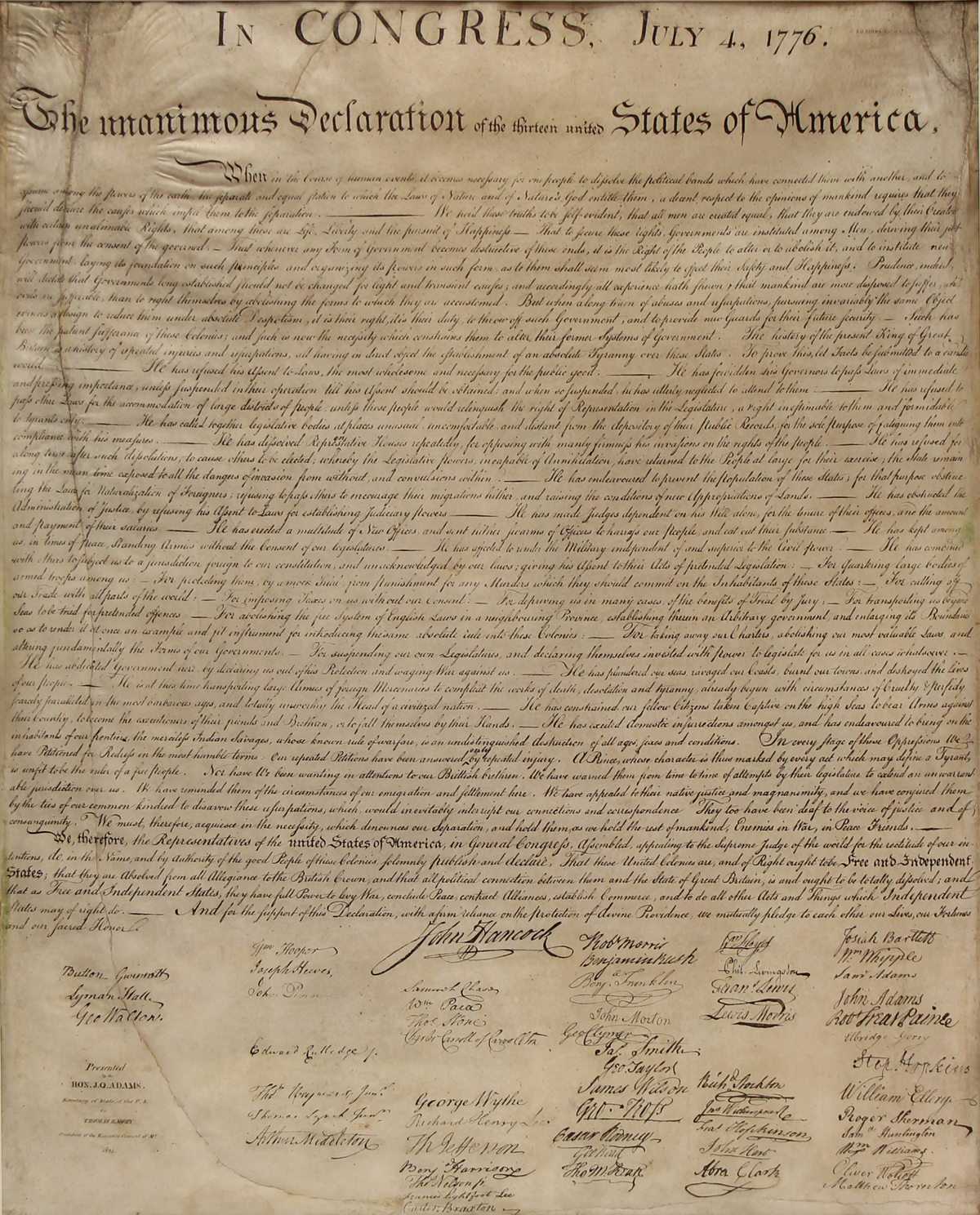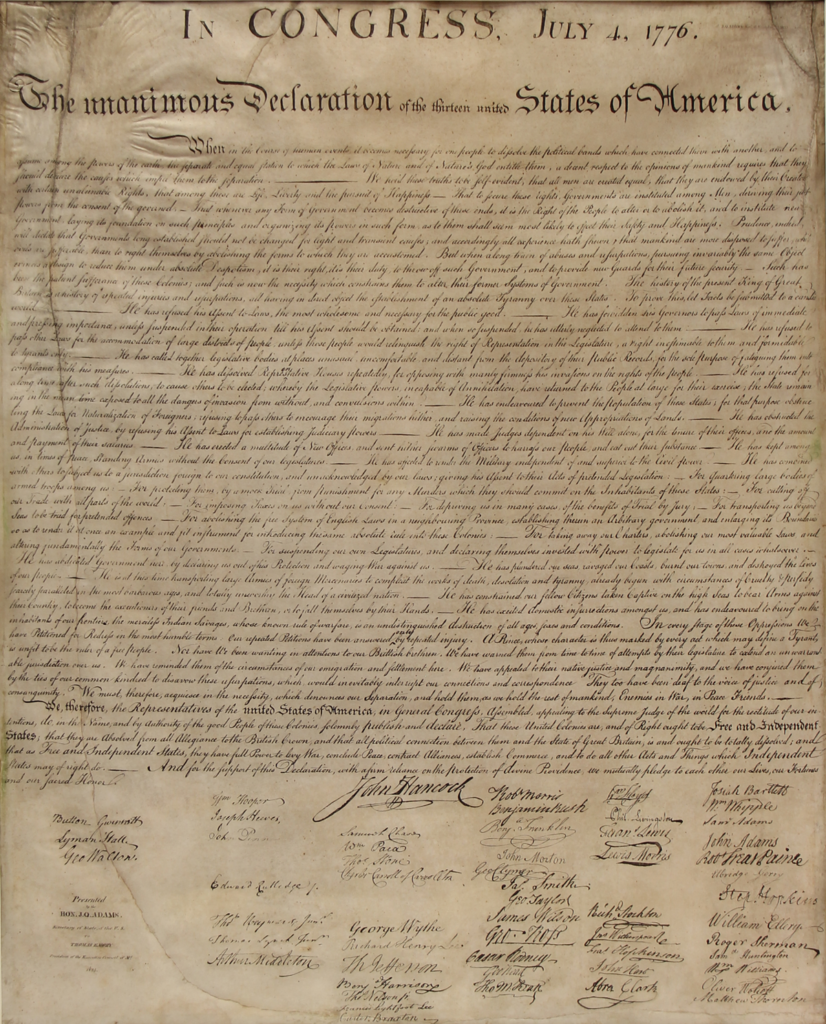Remembering That We Are a Constitutional people
October 1, 1997

September 17, 1997. Constitution Day. It was on this day two hundred and ten years ago when the Constitutional Convention that had gathered in Philadelphia adjourned, the delegates having voted to recommend to their fellow citizens the Constitution they had spent the hot summer in writing. This was seen as a momentous act. Some great deed had been accomplished, the likes of which had not been seen before. By 1789 enough states had ratified the Constitution to allow it to go into effect.
On this day in the contemporary world if the Constitution is mentioned at all it is mentioned only because some public opinion poll has learned that few people know anything about it. We are bombarded with statistics about the fact that most people don’t know who their Congressman is; that most do not know that each state, regardless of population, has two Senators; that most people can’t identify “We the People of the United States, in order to form a more perfect Union…” as the beginning of the document. And we are reminded of other facts of which we are ignorant.
Yet, during these same days, we are trying to bring democratic government to countries from Haiti to China to Bosnia. And we think this is a good thing, even if done at the point of a gun. After all, isn’t it true that if you asked any high school senior what form of government the United States has, he would invariably answer, we are a democracy?
It’s bad enough that citizens do not know facts about the Constitution; what is worse is that they have almost no appreciation of its purpose. What is the Constitution for? After all, if we wanted a democracy, we could have instituted one. We could have had a simple regime in which the majority, ruling directly, would have governed. But we did not do that. And there are good reasons for this.
This day should remind us that majority rule (or democracy) is an incomplete understanding of what we our selves are (and also of what we would like other countries to become). In fact we are more of a constitutional people than a democratic one.
We do not deny that the majority have a right to rule. We affirm that all human beings are born free and equal and have natural rights. But we think that this power of the people is limited: government, even when that government is based on the people’s consent, has no right to take away those rights that human beings have by nature. Government didn’t give us those rights and government has no right to take them away. Indeed, we have established government so that those rights may be more secure.
The proposed Constitution of 1787, and the fact that it was ratified by the thirteen states, reflects well on the mind and character of the American nation. In ratifying the Constitution the people did nothing less than place formal limits on their own power. They did something that they could have avoided doing. They could have willfully argued that because they had a right to rule, the majority could do whatever it wanted.
But they did not argue this. Indeed, both the proponents and the opponents of the Constitution argued that the government had to be limited. The majority—through the Constitutional provisions of separation of powers, checks and balances, federalism, etc.—saw that it was necessary to make itself as reasonable and moderate as possible. The purpose was to create good government based on, in Hamilton’s words, “reflection and choice” rather than “accident and force.”
It is one of the most amazing facts in the history of the world that a people, calling themselves a nation since 1776, and having established their legitimate right to rule on universal grounds of right, should immediately limit their own power. They recognized that the rule of the majority should be made republican and constitutional else they would end up ruling only in its own interest. And they also understood that habits of self-government, guided by the formalities of the Constitution, had to be maintained if the people were to remain free.
We have forgotten much of this because we have been bombarded, unfortunately, over the span of this century with a strange ideological view of the Constitution that argues that it is a living, growing document; that it can become whatever we want it to become; that it can, and should, accommodate itself to the peculiarities and perversities of any particular age; that it is so flexible that it means nothing. The Constitution, thus runs the argument, just gets in the way of our will, interest, and passion. It is nothing but an inconvenience. It interferes with our democratic passions.
But James Madison, the Father of the Constitution, whom Thomas Jefferson in 1790 called “the greatest man in the world,” would disagree with us. He and the other Founding Fathers would ask us to reconsider our willfully ignorant ways, to remember the enduring purpose of the Constitution, and thereby to ennoble our civic lives immeasurably.
